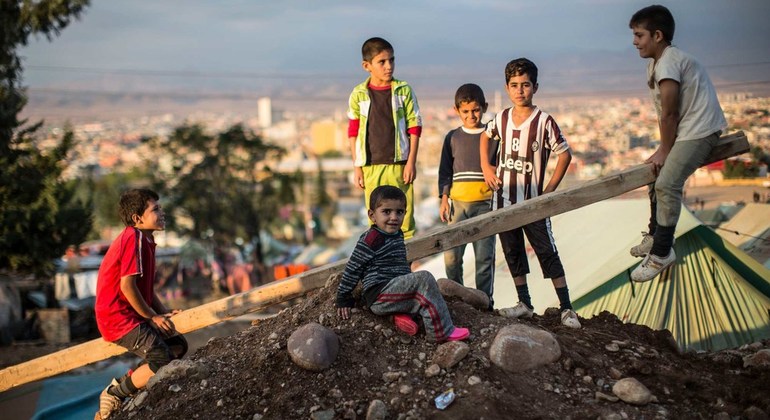“To stop COVID-19 anywhere, it must be stopped everywhere”, Jens Laerke, Spokesperson for the UN Office for the Coordination of Humanitarian Affairs (OCHA) underscored at a joint press briefing in Geneva on Friday, adding that if the worldwide transmission is not broken, “the virus could cycle back” to countries that thought they were safe.
Maintaining the global humanitarian response is “an act of global solidarity”, he pointed out that “it is also an act of enlightened self-interest”.
Shining on a light on the 100 million people living in war zones and other emergency settings who depend on UN humanitarian assistance, he stressed the imperativeness of keeping lifelines open to those in need “while taking action to avoid the catastrophic impact COVID-19 could have on them”.
“Many live in cramped conditions and with limited or no access to proper sanitation or basic health services”, he said. “As the virus reaches these places, the consequences could be devastating”.
While explaining that OCHA is working to raise awareness on how to protect from the virus and ensure the safety of staff and people they serve, Mr. Laerke stressed that “humanitarian aid should be allowed to flow freely”.
He noted that the additional burden of COVID-19 may draw attention away from other outbreaks, such as Cholera or yellow fever, and flagged the need to continue supporting the most vulnerable, including through UN-coordinated humanitarian and refugee response plans.
As the Central Emergency Relief Fund (CERF) released $15 million to help contain the virus in vulnerable countries, and several country offices had released funds to scale up preparedness, OCHA is working on a global humanitarian response plan to launch next week.
Feeding children, nourishing families
The World Food Programme (WFP), world’s largest humanitarian agency tackling and food insecurity, has a critical role in maintaining food assistance for 87 million people, while supporting the global humanitarian response to the coronavirus pandemic.
With COVID-19 barring over 860 million students from schools and leaving 300 million primary school children without school meals, the agency is working to ensure that they and their families continue to receive food and nutritional support during the pandemic.
“Nearly nine million children are no longer receiving WFP school meals – and that number is set to rise in coming days and weeks”, WFP Spokesperson Elisabeth Byrs told the journalists, explaining that its school-feeding programmes “span 61 countries globally and serve as a critical social safety net for poor and vulnerable households”.
In countries where schools are still open, she said “the priority is to ensure that hygiene, behaviour and food safety standards are followed and that social distancing measures are addressed to mitigate the risk of increased infections”.
“WFP is working with partners to improve access to water and sanitation”, she added, noting that in countries where schools are closed, the UN agency is exploring other options, such as take-home rations, food delivery and cash or vouchers.



